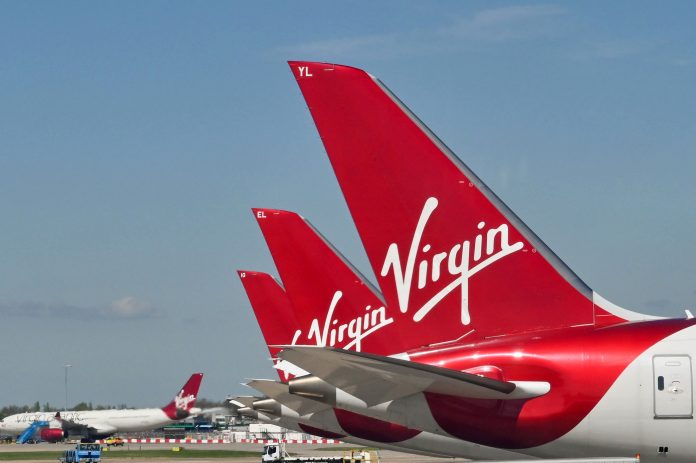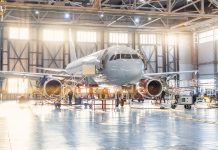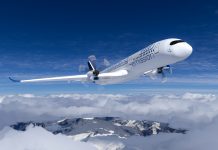Virgin Atlantic’s consortium announces a historic milestone with the world’s first 100% sustainable aviation fuel (SAF) transatlantic flight
Virgin Atlantic, a leading consortium in the aviation industry, has confirmed a groundbreaking event in the fight against carbon emissions.
On November 28, 2023, the consortium will execute the world’s first 100% sustainable aviation fuel (SAF) transatlantic flight.
The flight is scheduled to depart from London Heathrow in the United Kingdom and arrive at New York JFK, representing a significant step towards decarbonising the aviation sector.
Virgin Atlantic breaks barriers: 100% SAF transatlantic flight
Before the historic SAF-powered flight can take off, it is subject to regulatory approvals and testing to ensure its safety and viability.
The consortium emphasises that this flight marks a crucial moment in the aviation industry’s path towards decarbonisation, as SAF remains one of the most accessible solutions for reducing carbon emissions.
Virgin Atlantic’s CEO, Shai Weiss, stresses the importance of radical collaboration to achieve the industry’s ambitious targets by 2030.
Government support for sustainable aviation fuel industry
Weiss underlines the necessity of UK government support to foster a sustainable aviation fuel industry in the country.
Such consent will enable all flights departing from the UK to operate using 100% SAF, demonstrating a commitment to sustainable practices and cleaner air travel.
The journey to 100% SAF
A significant step towards the SAF transatlantic flight occurred with the successful ground test of the Rolls-Royce Trent 1000 engines, which will power the Boeing 787 Dreamliner during the flight.
Air bp and Virent, leading fuel suppliers, have been selected to provide the 60 tonnes of SAF required for the world’s first 100% SAF transatlantic flight. The fuel will be produced using the hydro-processed esters and fatty acids (HEFA) pathway and synthetic aromatic kerosene (SAK) SAF at an 88% and 12% blend ratio.
Challenges and opportunities for SAF
Although SAF is seen as essential for achieving the aviation industry’s net-zero ambitions, it currently represents less than 0.1% of jet fuel volumes.
Additionally, current fuel standards permit only up to a 50% SAF blend in commercial jet engines. The upcoming Virgin Atlantic flight aims to demonstrate the potential of SAF as a 100% drop-in replacement for conventional fossil fuel, encouraging broader adoption in the future.
Addressing environmental impacts
Virgin Atlantic and its partners view the SAF transatlantic flight as a catalyst for increased SAF usage and addressing other environmental challenges in the aviation sector.
Any residual emissions from the flight will be countered through innovative carbon removals from biochar projects.
Air bp’s Global Aviation Sustainability Director, Andreea Moyes, stresses the critical role of SAF in achieving the industry’s net-zero ambition.
In the short and medium term, SAF remains the most viable option for long-haul flights, necessitating collaboration among key stakeholders to accelerate the adoption of SAF and decarbonise aviation.
Virent’s role in sustainable aviation
Dave Kettner, President & General Counsel of Virent, emphasizes their commitment to finding sustainable flying methods. Virent’s plant-based synthetic aromatic kerosene (SAK) is crucial in the 100% drop-in renewable fuel used in the ground test flight.
This successful demonstration shows that renewable fuel is cleaner burning and compatible with today’s commercial airline engines, highlighting the company’s pivotal role in making sustainable aviation a reality.
The upcoming SAF transatlantic flight by Virgin Atlantic signifies a groundbreaking moment in the aviation industry’s journey towards sustainability.
As the consortium pioneers this historic flight, the focus remains on harnessing the potential of SAF, promoting its adoption, and collaboratively working towards a greener future for aviation.
Editor's Recommended Articles
-
Must Read >> How can the aviation industry cut emissions?














